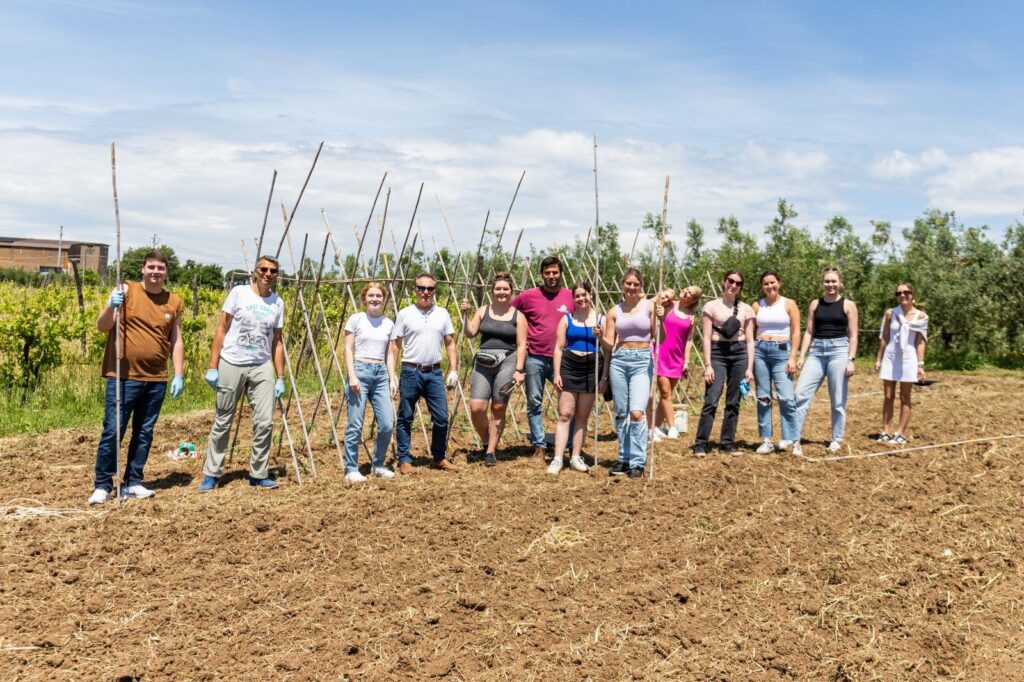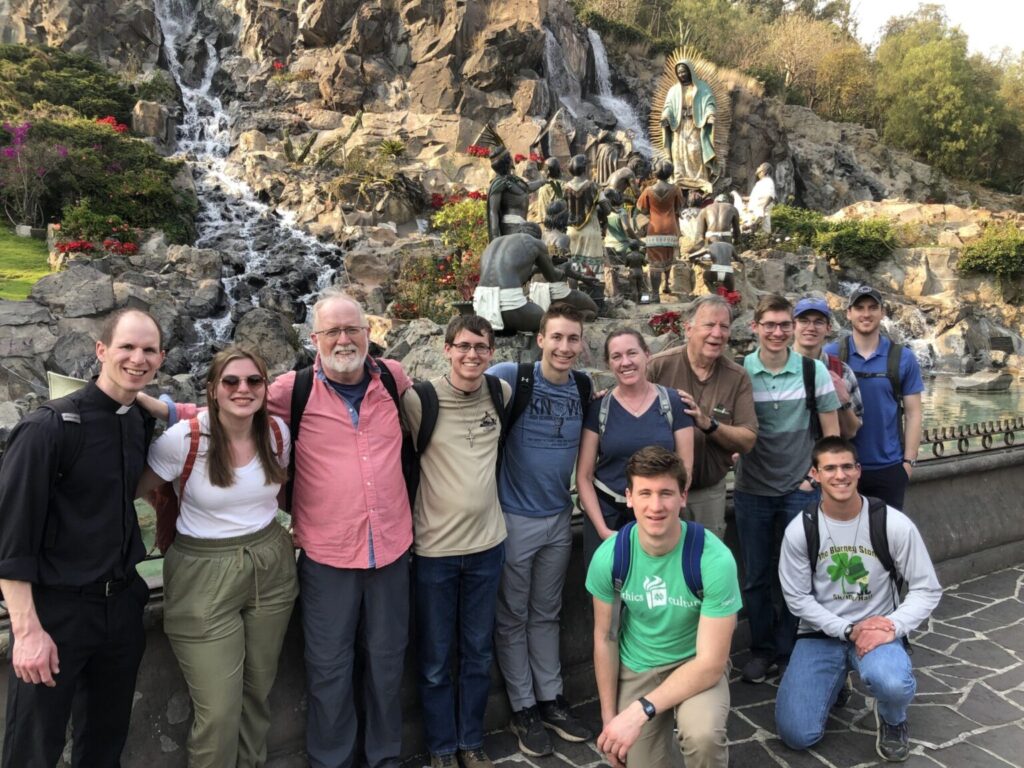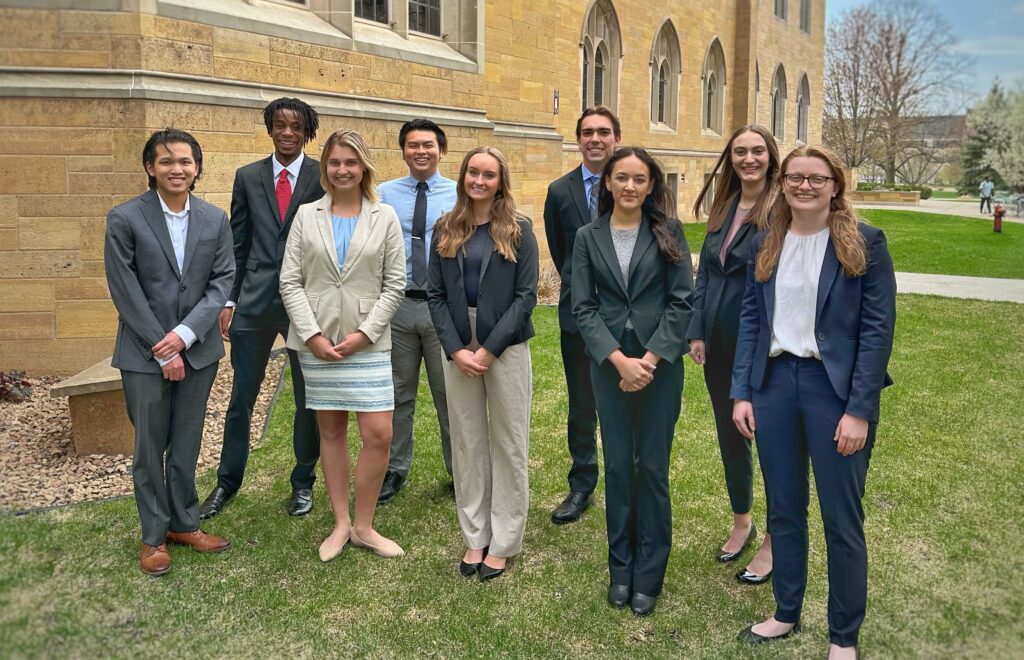In a typical J-Term, approximately 600 students embark on study abroad trips across six different continents. The opportunity to travel over the month of January is an important part of St. Thomas’ nationally ranked study abroad program; 57% of graduating seniors last year studied abroad at least once during their time at the university. While the COVID-19 pandemic has made travel nearly impossible for students across the country, St. Thomas has found ways to provide students with a global experience despite the current circumstances.
The Office of Study Abroad has collaborated with several other university departments to offer a variety of opportunities for students to connect with the global community. One of these opportunities, the Abroad at Home series, is a variety of cocurricular virtual events that were offered over J-Term with the goal of engaging students with various aspects of different cultures across the world. These events included an Italian cooking class; a lesson on Italian coffee culture with Thanos Zyngas, director of the Bernardi Campus in Rome; and a virtual discussion surrounding various foreign films. The university also offered a variety of academically focused events, such as a lecture given on street art in London.
One student, Gracelyn Riedel, a neuroscience major, attended the event on Italian coffee culture. “It was so cool to meet and ask questions to people directly in Rome! I love coffee, so this was right up my alley,” she said. “While we were over Zoom, we got to speak to people in Rome in real time. It was a glimpse into their life, the closest we could get to an abroad experience in these circumstances.”
When asked further about the event itself, Riedel added, “COVID is very limiting, but the Coffee in Rome event really hit the ‘abroad at home’ goal.”
When developing these programs, the university wanted to explore bringing experiences to students in their homes … wherever their homes might be, Associate Director of Study Abroad Sarah Huesing explained.
“One of the great things about this world we are living in, if we can find the silver lining, is that at least in our office we have been able to bring our international partners to students in St. Paul in a way that we’ve not been able to do before because everybody has become so used to technology,” she said. “You can’t overestimate the benefits of a study abroad experience. There’s intercultural learning that takes place, learning to navigate different cultures and how to work with people whose backgrounds are different than your own, particularly from a career perspective. There’s also a lot of personal development that takes place; students gain independence and learn how to deal with ambiguity.”
Another student, Russian studies major Samantha Nordmark, who also attended various sessions within the Abroad at Home series, echoed Riedel’s remarks, stating that “COVID-19 obviously brought this kind of study/travel to a halt, but the programs at St. Thomas such as this one have done an excellent job implementing cultural curiosity in an online format. It has helped me quench my thirst for experiencing new things and meeting new people!”
In addition to the programs offered to undergraduate students, the university also has developed ways to connect graduate students with the greater global community. Through a J-Term program for MBA students centered around business in Latin America, students were given the opportunity to learn about various countries and their cultural practices. As a result of a partnership between the university and the CENTRUM Business School in Lima, Peru, students engaged with a panel of Latin American businesspeople from Peru, Argentina and Chile.
Students also had the opportunity to participate virtually in cultural engagement activities that included tango performers and musicians from Argentina, a coffee tasting, cooking lessons from a Peruvian master chef, and a wine tasting from a Chilean vineyard.
Opus College of Business Professor Peter Young, the 3M Chair in International Business, said, “We were interested in all the different ways that Latin American businesspeople interact with U.S. businesses and businesspeople. With a traditional study abroad program, the idea is that we’re Americans trying to assess the culture of the place we’re visiting. However, I decided that since we couldn’t do that, we would have Latin American businesspeople and others talk to us about their perceptions of our culture, specifically how they work with American firms and American managers, along with how they see us.”
Young also explained that the format of a virtual study abroad experience has a number of unique opportunities. “We were able to meet people from Chile, Argentina and Peru; we also had people from Colombia and Brazil, which you couldn’t do on a traditional trip. In a way, it actually opens up a door that isn’t available with traditional trips – you can do very creative and wide-ranging things that are not possible if you’re physically traveling.”
Josie Swanson, director of graduate business programs at the Opus College of Business, echoed Young’s sentiments surrounding the program by explaining that, in the end, she hoped that it pushed students to continue to think about things from a different perspective.
“It can be easy trying to accomplish what your goals are for your organization and to lose sight of challenges that other organizations are facing, whether that’s in the U.S. or otherwise,” Swanson said. “Continuing to think about things from different perspectives is important and the way that that course was framed really helped people to do that. Hopefully that’s something that students can continue to use moving forward.”
With the ongoing COVID-19 pandemic, St. Thomas is also pursuing ways to continue to provide this global experience. Huesing explained that the Office of Study Abroad is offering a variety of global online programs that will continue to allow students to engage with cultures around the world and develop a global perspective despite the travel restrictions in place. One of the opportunities available to students includes the ability to volunteer with organizations based in other countries.
The Office of Study Abroad is also working to provide global internship opportunities for students. Huesing said, “We are now partnering with an organization called Global Experiences to provide structured eight-to-12-week virtual international internships ... additionally, we just recently launched what we’re calling a micro-internship program. The Global Experiences are very structured with a career coaching and mentoring program.”
Additionally, other departments on campus are working to provide their students with a global perspective through the lens of their discipline. Huesing stated, “The School of Engineering is doing something very cool with an organization in Peru. They are offering international programs over the summer called Global Summers, where students travel to another country. Obviously, the travel was not available, so they worked with the faculty at the two sites they would normally visit to still bring those lectures into the classroom,” she said.
Huesing explained that when it comes to the opportunity to engage in global experiences and further develop a global perspective, students “shouldn’t ever forget that the world is a big place and that even though we are all kind of confined to our homes right now, or our little areas of the world, that we can always be learning, and that we can always be experiencing new things. This is one way to do that.”







